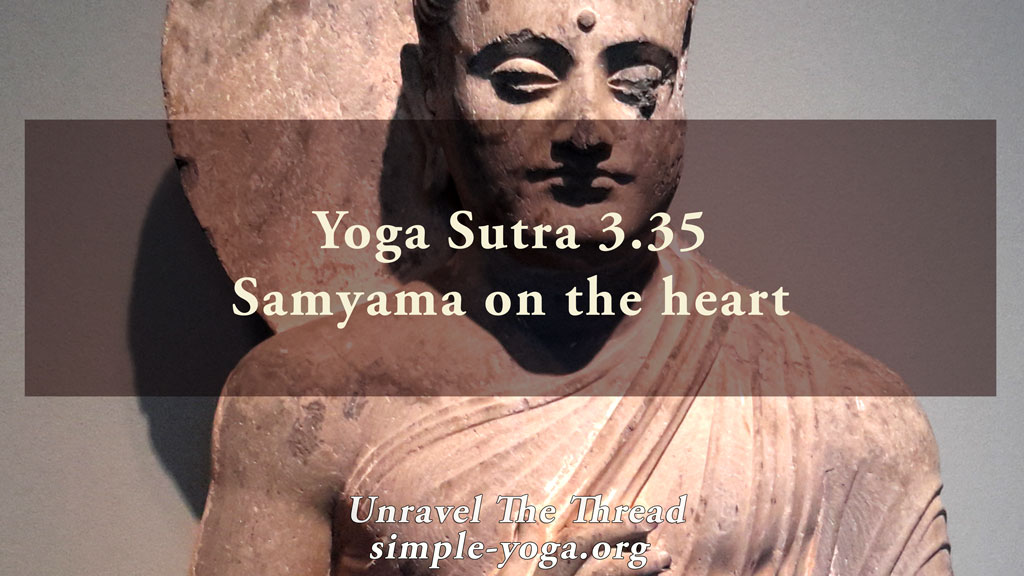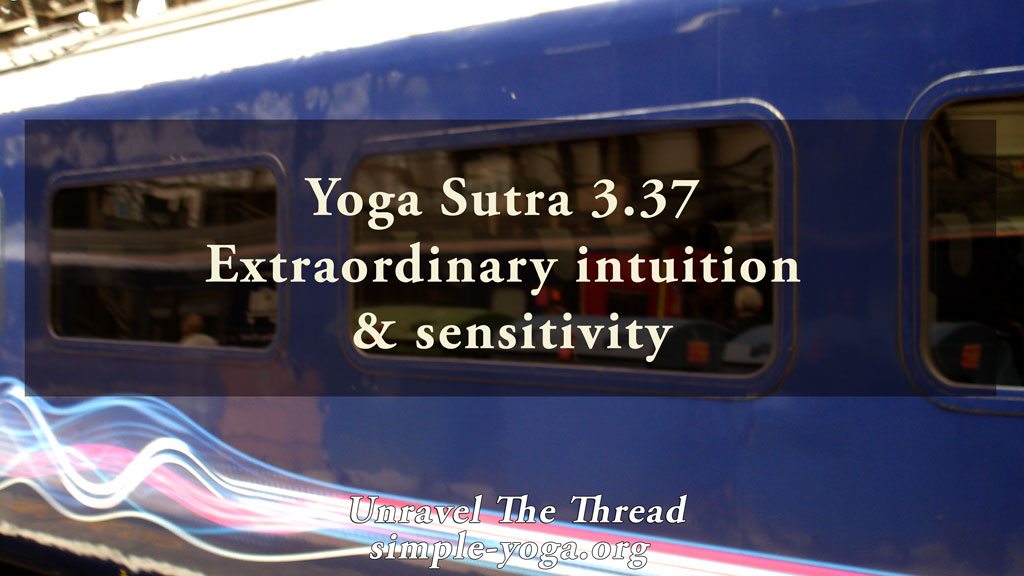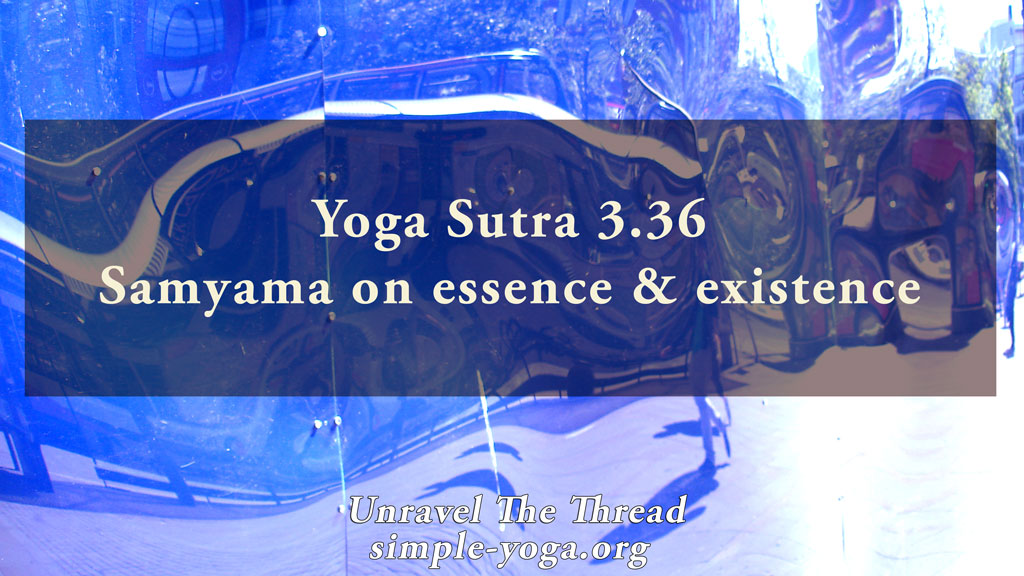
3.35 Samyama on the heart
December 28, 2021
3.37 Extraordinary intuition and sensitivity
January 9, 2022
3.35 Samyama on the heart
December 28, 2021
3.37 Extraordinary intuition and sensitivity
January 9, 20223.36 Samyama on difference essence and existence

3.36 Even a balanced and clear mind is different from pure awareness. When there is no distinction of this difference, individual awareness misidentifies with experiences, feelings, and perceptions. Meditative integration (samyama) on this distinction results in knowing pure awareness (purusha).
This sutra presents the core of the teachings of the Yoga Sutra. Once again, the major theme of the Yoga Sutra emerges restating the ideas presented in sutras 1.3 and 1.4 as well as in sutras 2.6 and 2.17. You can choose to see life and all that it offers as a playground for your senses, leading you to all kinds of experiences. If this is your viewpoint, you will likely pursue pleasurable experiences (raga) and push away whatever you dislike (dvesha). Yet, even if you are fortunate enough to have only pleasurable experiences, sooner or later, all the pleasurable experiences will come to an end – causing you pain and suffering (2.15). This aphorism is an invitation to investigate your essence and its relationship to your experiences. Hence, it invites you to engage deeply in the process of developing your discriminative awareness (viveka), just as aphorism 2.26 did before.
What do you notice when you observe yourself during your daily experiences?
What are your motivations?
What are your expectations?
How do you respond to the changing circumstances in the world around you?
Do you respond with kindness and grace?
Or do you react with defensiveness and aggression?
Can your internal environment become clear and free from cravings, opinions, and reactivity?
Can you accept your experiences and navigate them with grace and equanimity?
Remember the process invoked in the comment to sutra 2.10 and consider exploring the differences between who you think you are and who you actually are. Your thoughts and opinions about you and about life, are just comments that do not add anything to the quality of your experience. The direct experience of being is who you are.
When you release all your beliefs what is left?
Is there anything beyond the changeable aspects of your body, mind, and emotions?
Is it possible that once you are free from beliefs and grasping, you might be able to notice the distinction between who you think you are and who you are?
Then, can you focus your attention deeply and effortlessly (samyama) on the difference between the pure awareness that pervades all of existence and your individual awareness?
What do you discover?
As usual, one more way of exploring the meaning of this sutra is by chanting it.
You can choose to chant it in its traditional form with some of the words coming together:
3.36 sattvapuruṣāyoḥ atyantāsaṅkīrṇayoḥ pratyayāviśeṣobhogaḥ parārthatvātsvārthasaṃyamāt puruṣajñānam
सत्त्वपुरुषायोः अत्यन्तासंकीर्णयोः प्रत्ययाविशेषोभोगः परार्थत्वात्स्वार्थसंयमात् पुरुषज्ञानम् ॥३६॥
Another option is to chant each word in the sutra individually:
- sattva
- puruṣāyoḥ
- atyanta
- asaṅkīrṇayoḥ
- pratyaya
- aviśeṣa
- bhogaḥ
- para
- arthatvāt
- sva
- artha
- saṃyamāt
- puruṣa
- jñānam
If you prefer, you may listen to the podcast:
This is an excerpt from the book Unravel the thread: Applying the ancient wisdom of yoga to live a happy life
If you find Simple-Yoga.org and Unravel the thread useful, consider supporting my labor with a donation, you may also donate using PayPal or Venmo. Thank you!
